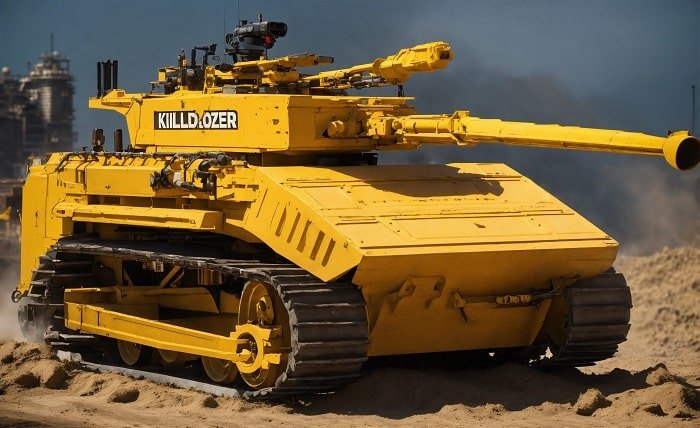Rock crushers are important tools in the mining, building, and aggregate industries because they break down rocks, stones, and gravel into smaller pieces that are easier to work with. Though these machines are made to work in harsh situations, they can have problems from time to time. Understanding common issues and being able to fix them is important for keeping things working well and making sure they last a long time. This piece will talk about some common problems with rock crushers and give you useful ways to fix them.
- Excessive Vibration
One of the most common issues with rock crushers is excessive vibration during operation. This could be due to a number of things, including parts that aren’t balanced, the machine being out of line, or worn-out parts.
Troubleshooting:
- Check for Imbalance: If you notice excessive vibration, inspect the rotor or the flywheel. These components can become unbalanced over time, especially if parts wear unevenly.
- Align the Crusher: Misalignment of the frame or other parts can also lead to vibration. Check the orientation often and make any necessary changes to make sure everything is where it should be.
- Replace Worn Parts: Parts such as bearings and crushers can wear down. Worn-out components should be replaced promptly to restore the balance and reduce vibration.
- Clogging
Clogging occurs when material accumulates and blocks the crusher’s feed. This issue typically arises when the material being fed into the crusher is too large or when there is a buildup of fines that prevent the material from flowing smoothly through the machine.
Troubleshooting:
- Check the Material Size: Ensure that the material being fed into the crusher is within the recommended size limits. Overly large rocks or chunks can easily clog the crusher.
- Clear the Feed Hopper: Regularly inspect and clean the feed hopper to ensure there are no obstructions.
- Reduce Fines Buildup: Install screens or other separators to prevent fines from accumulating and causing clogging.
- Poor Crusher Performance
If the crusher is not performing optimally, it could be due to a variety of factors, including wear on the crushing surfaces, incorrect settings, or inadequate lubrication.
Troubleshooting:
- Inspect Crushing Surfaces: Worn-out liners or plates can reduce the efficiency of the crusher. Replace worn parts and consider upgrading to higher-quality materials for better performance.
- Check Settings: Review the crusher settings, including the gap between the crusher’s jaws or cones. Incorrect settings can result in poor crushing performance.
- Lubrication: Make sure all the moving parts are well oiled to cut down on friction and boost speed. For smooth function, lubrication maintenance must be done on a regular basis.
- Overheating
Overheating is another common issue, especially in crushers that run for extended periods. Overheating can cause parts to wear out more quickly and reduce the machine’s efficiency.
Troubleshooting:
- Coolant Levels: Check the coolant system regularly to ensure that the coolant levels are adequate. Low coolant levels can cause the crusher to overheat.
- Clean the Heat Exchanger: If the crusher has a heat exchanger, make sure it is clean and functioning correctly. Dust and debris can block the heat exchange process, leading to overheating.
- Monitor Operating Temperatures: Watch the temperatures that the machine is running at and turn it off if they get too high. This can keep the internal parts from getting permanently damaged.
- Bearing Failures
Bearings are one of the most critical components of any rock crusher. Bearing failures can cause excessive heat, noise, and vibration, and can lead to total breakdowns if not addressed promptly.
Troubleshooting:
- Regular Inspections: Perform routine inspections of bearings for signs of wear or overheating. Early detection can prevent costly failures.
- Lubricate Bearings: Keep bearings lubricated to prevent them from seizing. Regular lubrication reduces friction and extends bearing life.
- Replace Damaged Bearings: If you see that the bearings are broken or worn out, you should replace them right away. Do not wait until the issue gets worse.
Conclusion
Many industries need rock crushers, but like any other machine, they need to be maintained and cared for on a frequent basis. Common problems like too much vibration, clogging, bad performance, overheating, broken bearings, and electrical issues can waste time and money if they are not fixed quickly. To make sure a rock crusher works well for a long time, it needs to be inspected regularly, fixed when needed, and maintained properly.
To find a rock crusher near me or if your crusher is having any of these problems, you should get it checked out by a professional who can figure out what’s wrong and fix it. Keeping your equipment in great shape is important for keeping it working well and avoiding expensive repairs in the future.

